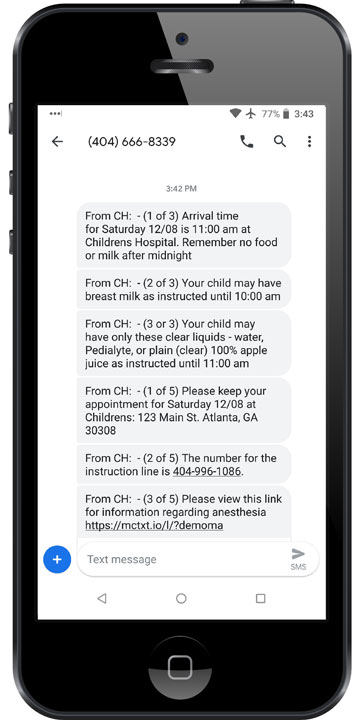Prescription filled? Text. Package delivered? Text. School closing early? Text. Hair appointment reminder? Text. Yes, nowadays we receive a text instead of a phone call for just about everything. But what about a critical event like surgery? Why not extend that same convenience to patients?
We don’t text our patients — most of them are too young to read. Here at our pediatric hospital and surgery center, we offer our patients’ parents a text message alert system to help them navigate a scary time: their child’s surgery, often their little one’s first visit to the OR. In addition to texting them reminders about arrival times and NPO status, we also text parents links to information and videos on our website about parental presence at induction of anesthesia and preparing for outpatient surgery, topics that could be unsettling unknowns to them.
Just as text messaging has become the go-to form of communication for most of us, it’s really enhanced our pre-op communications. We’ve been sending automated pre-op texts for about a year now. It hasn’t replaced the nurse’s phone call — at least not yet — but we can’t imagine life without our customized texting service.
.svg?sfvrsn=be606e78_3)

.svg?sfvrsn=56b2f850_5)